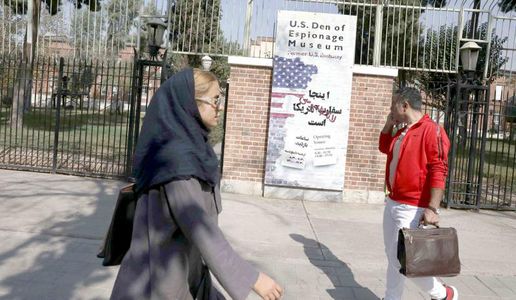Aftandilian in The Arab Weekly on U.S.-Iran Relations
Gregory Aftandilian, Lecturer at the Frederick S. Pardee School of Global Studies at Boston University, published a recent Op-Ed on relations between the United State and Iran since the hostage crisis of 1979 when radical Iranian students took over the U.S. Embassy in Tehran and held U.S. diplomats hostage for 444 days.
Aftandilian’s Op-Ed, entitled “40 Years After Hostage Crisis, US and Iran Remain Staunch Enemies,” was published in The Arab Weekly on November 12, 2019.
From the text of the article:
Although in his speech to the UN General Assembly in September, US President Donald Trump, in reference to Iran, said the United States has never believed in permanent enemies, the US-Iran enmity has lasted quite a while.
November 4 marked the 40th anniversary of the start of the “hostage crisis” when radical Iranian students took over the US Embassy in Tehran and held US diplomats hostage for 444 days. That Iranian Supreme Leader Ayatollah Ruhollah Khomeini soon approved this takeover led to a break in US-Iranian diplomatic relations, which have yet to be restored.
That humiliating crisis was etched in stone for most Americans and has coloured their view of Iran, a country that was once a US ally. The hostage crisis ruined the chances for US President Jimmy Carter to win a second term in office and enabled hard-line factions in Iran to move against more moderate factions.
Gregory Aftandilian, a consultant, scholar, and lecturer, is an adjunct faculty member at Boston University and American University. He is also an associate of the Middle East Center at the University of Massachusetts-Lowell and a Senior Fellow for the Middle East at the Center for National Policy in Washington, D.C. He spent over 21 years in government service, most recently on Capitol Hill where he was foreign policy adviser to Congressman Chris Van Hollen (2007-2008), professional staff member of the Senate Foreign Relations Committee and foreign policy adviser to Senator Paul Sarbanes (2000-2004), and foreign policy fellow to the late Senator Edward Kennedy (1999).
